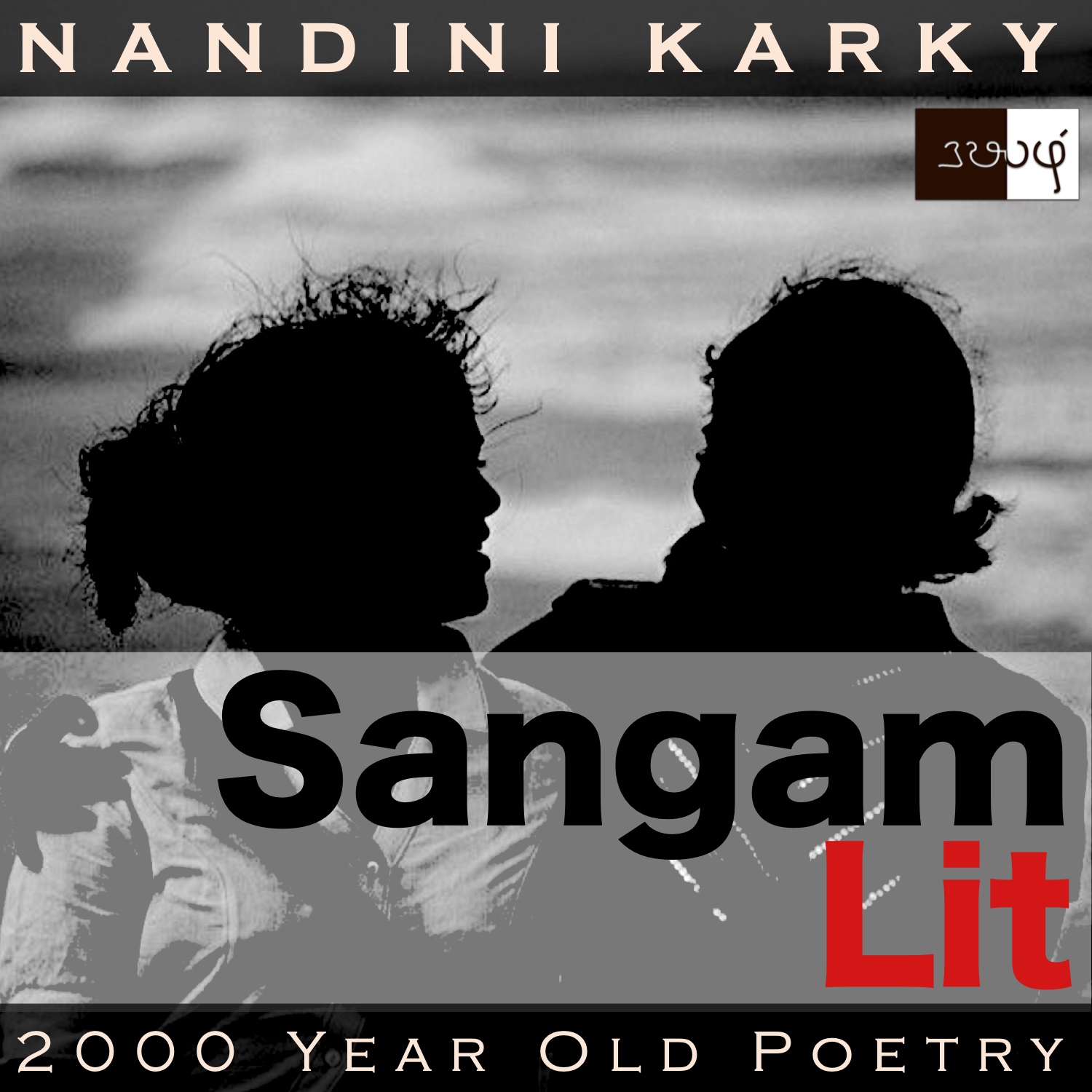Podcast: Play in new window | Download
Subscribe: Apple Podcasts | Spotify | Amazon Music | Android | iHeartRadio | TuneIn | RSS | More

In this episode, we unravel the abstract thoughts depicted in Sangam Literary work, Natrinai 72, written by Ilambothiyaar, this being the only poem penned by this poet. Set in the ‘Neythal’ landscape or the coastal regions, the poem speaks in the words of the confidante to the lady, expressing her fears, as the man listens nearby.
”பேணுப பேணார் பெரியோர்” என்பது
நாணு தக்கன்று அது காணுங்காலை;
உயிர் ஓரன்ன செயிர் தீர் நட்பின்
நினக்கு யான் மறைத்தல் யாவது? மிகப் பெரிது
அழிதக்கன்றால் தானே; கொண்கன்,
”யான் யாய் அஞ்சுவல்” எனினும், தான் எற்
பிரிதல் சூழான்மன்னே; இனியே
கானல் ஆயம் அறியினும், ”ஆனாது,
அலர் வந்தன்றுகொல்?” என்னும்; அதனால்,
”புலர்வதுகொல், அவன் நட்பு!” எனா
அஞ்சுவல்-தோழி!-என் நெஞ்சத்தானே!
Even at first glance, we see the poem is written like a play, filled with a spot of narration and successive dialogues. Before we dive into the sea of words, let’s meet the creator, the poet Ilambothiyaar, who is considered by many historians to be a Buddhist, as a part of the name, ‘Bothi’ stands in testimony. Others argue that Buddhism came much later to the Tamil regions and that the name could mean other things, while also indicating that the poet may be a female. However, the opinion seems to favour the poet being a Buddhist and this poem agrees in a way, seeming to stand out from other Natrinai poems encountered, with its different style. For, there are no descriptions of nature, no flora or fauna and no drama involving historical characters! This poem dwells purely in an abstract realm of values and principles. The absence of visual delights is compensated for, by the abundance of musical elements. Alliterations in ‘பேணுப பேணார்’, ‘யான் யாய்’, ‘ஆயம் -ஆனாது’, second letter-rhymes in ‘பேணுப – நாணு – காணுங்காலை’, ‘அலர் – புலர்’ and last-letter rhymes in ‘செயிர் தீர்’ as well as ‘ஆயம் அறியினும்’ suffuse a resonating flavour to the verse. The words ‘செயிர் தீர்’ caught my attention, as it’s an adjective for friendship and is said to mean ’without a fault’! Now, let’s explore what this friendship has to say.
The man has arrived to tryst with the lady and is waiting by the backyard. Knowing that the man is listening to their conversation, the lady’s confidante turns to the lady and says, “To say, ‘Those who do not value what must be valued, are noble’ is something worthy of shame, when you ponder upon it. As though we both are one life, we have an impeccable friendship between us. How can I ever hide something from you? That would bring utter ruin upon us! Sometime ago, when I told the lord of the shore, “I fear that mother will come to know”, he did not think of parting from you. But now, when I tell him that the playmates on the shore know of your relationship, he fears and says, ’There will be endless scandal now.’ So, my heart fears and tells you that his friendship is slowly withering away.” With these words, the confidante makes the man believe that the lady may be having doubts about their relationship. In consequence, the man will strive to alleviate such fears and prove his worth by seeking her hand in marriage.
A nuanced, philosophical poem dwelling on friendship, love and greatness! It starts with a saying about the great and noble. It’s common knowledge that those who are great cherish what must be cherished. But here, to say that the great don’t do that, is a shameful statement, the confidante says. She leads with that, because she is in fact referring to the man as that great person. She cannot say the man, who has won the lady’s heart, is not great. But yet, something he has done, seems to point in that direction. Then, she goes on to make a statement about her friendship with the lady. Usually it’s in a love relationship that two people are said to have one life. But here, the confidante characterises her relationship with the lady as though they both are ‘one life’. She adds by saying how their relationship is without a single fault. Something so pure and virtuous! After setting up the stage, she proceeds to say that it would be wrong, a completely ruinous thing on her part, to keep something from the lady. That’s why she opens up about her conversations with the man and her conclusions. She says that before, when she spoke to the man telling him that mother might come to know of their relationship, he did not worry about it and never thought of moving away from the lady. But now, when he realises that their playmates may know of the relationship, he worries that scandal will spread and stays away. That’s why the lady’s confidante tells her friend that the man is not who he used to be, for he’s not cherishing her as he should and that she fears his love is vanishing away.
In this way, the confidante seems to be saying that the man is not acting like the great person he is supposed to be. He’s not valuing what must be valued. That’s why, with great difficultly, the confidante brings up this topic with her friend. The fascinating facet of this poem is the nature of friendship depicted here. The poem says that a true friendship is one in which one never hides what needs to be said. It’s a relationship where one needs to say those things that a friend might not want to hear, if it’s in the best interest of that friend. Heartening to see that even in these poems on love and romantic relationships, the value of a friend is held supreme. It seems to me, a celebration of what friendship is, proclaiming in fine words that a friend is not another but one with oneself!




Share your thoughts...